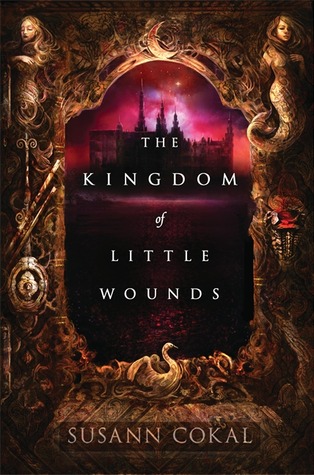Hmm… have I talked about my Game of Thrones kick in awhile? No? Well, let’s rectify that. I’m really into Game of Thrones. It’s true. Jessica, the Girl Who Would Not Read Historical Fiction or Fantasies is really into a historical fantasy series. I’ve spent many hours reading and listening to the first three books in the series, a decent enough time to ponder exactly why Westeros turns my crank. Since I am now an exceptionally mature adult, historical fiction is growing on me, and stories about family heritage passing down through generations, too. I don’t consider myself a particular junkie for political intrigue, but Martin cloaks the political power in various mystery plots, so it’s a pleasure (or, actually, a horror), to discover the characters’ secret motives as I read. I also like that Westeros is populated not by glistening princesses and shining knights – archetypes, roaming the seven kingdoms – but instead by characters with human needs and desires (Yes, that was code for ‘I like the sex and boobs and drinking’). And although Martin does write some fabulously insensitive crap about his female characters, I do enjoy the attention to the female experience in what is otherwise a male dominated time and place.
I liked Susann Cokal’s The Kingdom of Little Wounds for the same reasons, although the two may not seem particularly similar. Game of Thrones is an epic political saga spanning continents – The Kingdom of Little Wounds is hyper up-close look inside the royal castle walls of an imaginary Scandinavian castle, where lower class girls earn their living serving princes and queens… and currying royal secrets on the side. After a love affair ended with a public shaming, Ava Bingen is lucky to serve as a queen’s seamstress. But an accident lands Ava in the palace jail, and the only way to preserve her position is to enter a secret-sharing arrangement with a ruthless Duke, which draws Ava deep into the complex and occasionally gruesome secret lives of the royal court members. Although Ava – misguided, striving, and exploited – is the focus of the plot, Cokal’s multiple perspectives also explore the lives of a mute slave girl, an ill princess, and a queen who may be crazy or may be suffering from being Female in a Man’s World. There are a variety of richly imagined female experiences here, all of which weave together to change the course of political events, quietly undermining decisions made by the men in power.
I should also mention that if you thought Game of Thrones was raunchy, debauched, and otherwise graphic, then The Kingdom of Little Wounds will probably turn your stomach. I am generally a sensitive flower when it comes to literary bodily functions – pretty sure Mr. Martin’s characters soil themselves about 100 times more often than realistic or necessary – but Cokal uses the grotesque realities of medicine, daily hygiene, and sickness to play up the ugliness of royal political schemes and call your attention to the weirdness that is relationships between Royals (the randomly, genetically anointed chosen class) and the Servants (who empty their chamber pots and watch them sleep with one another). It’s almost a little like Downton Abbey in that regard.
So this book is basically Game of Thrones meets Downton Abbey!
Um. That was a joke. I should probably accentuate HOW gruesome this book is. It’s quite graphic. I don’t think it’s anything that teens can’t handle, but be warned.
But, really, I do digress. If I am going to make Game of Thrones comparisons, I should also mention that Cokal writes dizzying circles around Martin. The Kingdom of Little Wounds is like a thick chocolate cake of a book; moist and gooey language, rich imagery, best taken in small portions. This is a beautifully written book to the point that it will likely frighten you. Much more than GoT or Downton, reading this book reminded me of the brilliant and intimidating The Astonishing Life of Octavian Nothing by the inimitable M. T. Anderson. I assure you, this is the very highest of complements. I also assure you that The Kingdom of Little Wounds a gorgeous, dense, unflinching story about how history is written, and this review has done it zero justice.
